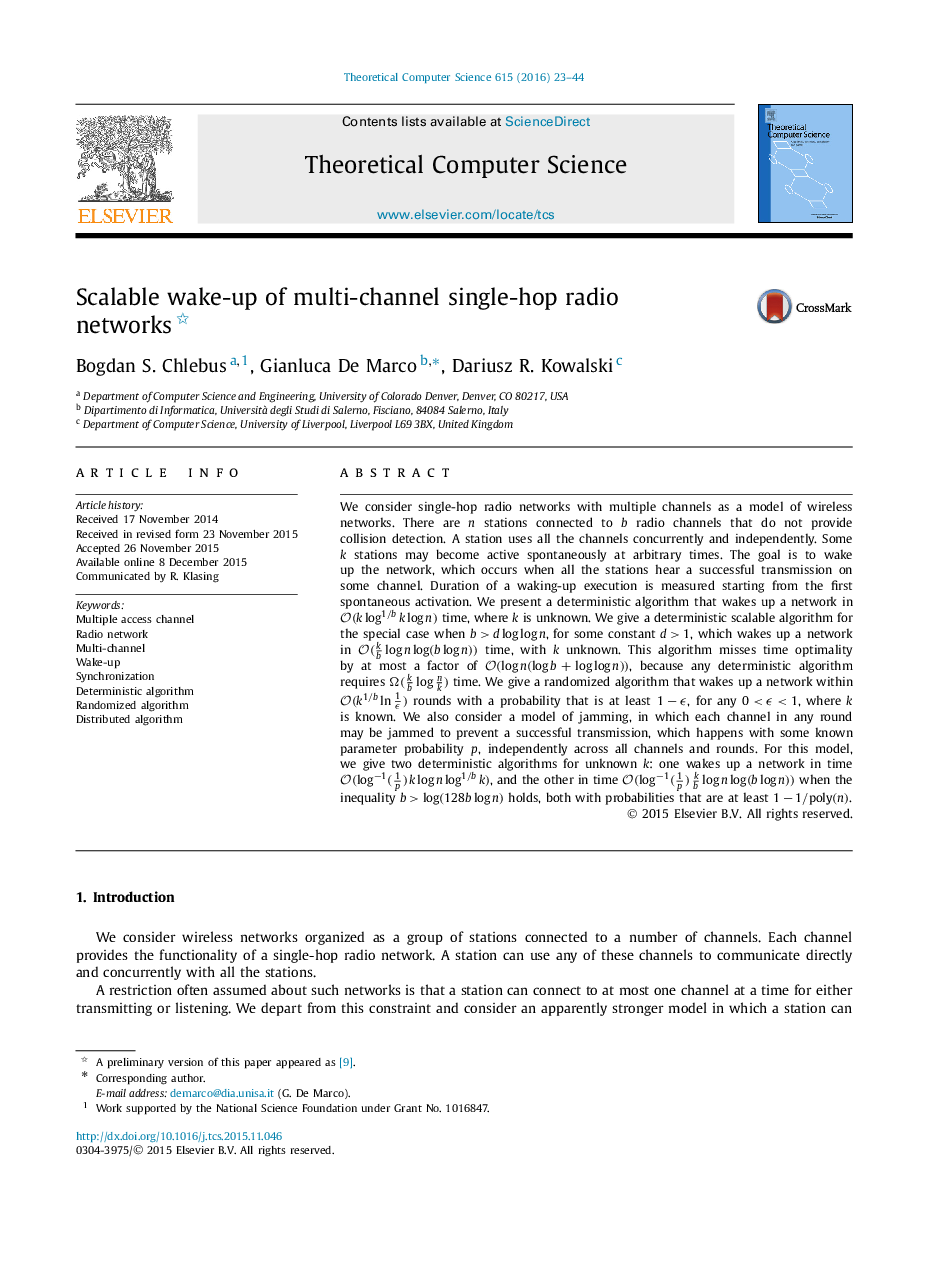| Article ID | Journal | Published Year | Pages | File Type |
|---|---|---|---|---|
| 6875980 | Theoretical Computer Science | 2016 | 22 Pages |
Abstract
We consider single-hop radio networks with multiple channels as a model of wireless networks. There are n stations connected to b radio channels that do not provide collision detection. A station uses all the channels concurrently and independently. Some k stations may become active spontaneously at arbitrary times. The goal is to wake up the network, which occurs when all the stations hear a successful transmission on some channel. Duration of a waking-up execution is measured starting from the first spontaneous activation. We present a deterministic algorithm that wakes up a network in O(klog1/bâ¡klogâ¡n) time, where k is unknown. We give a deterministic scalable algorithm for the special case when b>dlogâ¡logâ¡n, for some constant d>1, which wakes up a network in O(kblogâ¡nlogâ¡(blogâ¡n)) time, with k unknown. This algorithm misses time optimality by at most a factor of O(logâ¡n(logâ¡b+logâ¡logâ¡n)), because any deterministic algorithm requires Ω(kblogâ¡nk) time. We give a randomized algorithm that wakes up a network within O(k1/blnâ¡1ϵ) rounds with a probability that is at least 1âϵ, for any 0<ϵ<1, where k is known. We also consider a model of jamming, in which each channel in any round may be jammed to prevent a successful transmission, which happens with some known parameter probability p, independently across all channels and rounds. For this model, we give two deterministic algorithms for unknown k: one wakes up a network in time O(logâ1â¡(1p)klogâ¡nlog1/bâ¡k), and the other in time O(logâ1â¡(1p)kblogâ¡nlogâ¡(blogâ¡n)) when the inequality b>logâ¡(128blogâ¡n) holds, both with probabilities that are at least 1â1/poly(n).
Keywords
Related Topics
Physical Sciences and Engineering
Computer Science
Computational Theory and Mathematics
Authors
Bogdan S. Chlebus, Gianluca De Marco, Dariusz R. Kowalski,
